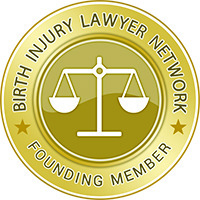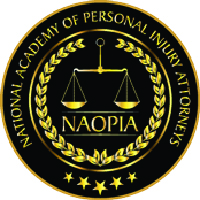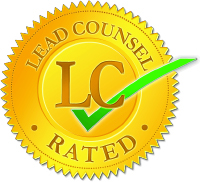Approximately 10,000 babies born in the United States will develop cerebral
palsy, the Centers for Disease Control and Prevention reports. That means
that 1 in every 323 children will be diagnosed with cerebral palsy. It
is a rare childhood disorder that effects the part of the brain that directly
controls motor movement, muscle tone and/or posture. The symptoms and
their effects vary depending on the type of cerebral palsy and severity
of the condition. This severity can range from a slightly awkward walk
to the loss of muscle movement completely.
The forms of cerebral palsy include:
- Spastic Cerebral Palsy
- Dyskinetic Cerebral Palsy
- Ataxic Cerebral Palsy
- Mixed Cerebral Palsy
Spastic and Dyskinetic Cerebral Palsy are the only two types caused by
birth hypoxia.
While no parent can anticipate the disability, occasionally it occurs because
of physician or hospital negligence. In those cases, the child may be
eligible for compensation for his/her suffering, as well as for the tremendous
cost of medical care and lost career opportunities.
Causes of Cerebral Palsy
Researchers have yet to determine a singular cause for cerebral palsy.
In some cases, cerebral palsy occurs because of trauma to a developing
brain during birth. Other times, it happens because of the negligence
of a hospital or doctor failing to adhere to protocol and regulations.
Some medical complications that cause cerebral palsy includes:
- Oxygen deprivation during labor
- Abnormal brain development
- Intracranial hemorrhage
- Periventricular leukomalacia
Most cases of cerebral palsy caused by negligence involve oxygen deprivation.
Doctors and hospitals have a responsibility to provide appropriate care
when they treat mother and child. They do not have just one patient, they
have two. However, if they do not appropriately monitor a fetus or improperly
treat a newborn, their mistakes can lead to brain damage and cerebral palsy.
Common
medical malpractice errors that lead to cerebral palsy are:
- Failure to perform a cesarean section in a timely manner
- Not identifying fetal distress
- Failure to treat medical conditions of the mother during prenatal care
- Hyperstimulation with Oxytocin (Pitocin)
- Failure to recognize that the umbilical cord is wrapped around baby’s neck
- Not properly monitoring mother or baby’s vital signs
Signs of Cerebral Palsy
The symptoms of cerebral palsy vary greatly from case to case. Each child
is unique and their symptoms will present differently depending on the
severity of the damage or trauma. However, babies display some distinct
characteristics that can alert a parent to their condition.
Things to look for in babies younger than 6 months:
- Their body feels stiff
- Their head is slow to move when you pick them up
- They feel floppy and like they have a lack of control on their body
- When you hold them, they overextend their neck and back
Things to look for in babies older than 6 months:
- They do not roll in either directions when they are laying down
- They cannot bring their hands together
- They have difficulty bringing their hand to their mouth
- They only move one arm while holding the other one stiffly
Things to look for in babies older than 10 months:
- They crawl in a lopsided manner, dragging or preferring one side of their body
- They scoot on their butts, without crawling on all fours
If you are a parent and notice these symptoms in your child, alert your
doctors. Physicians can run specific tests to diagnose the condition.
They can monitor development, perform CT scans and MRIs to determine whether
the brain has been affected and if the result is cerebral palsy.
If your child sustained brain injuries due to of negligence or inaction
by nurses or doctors, and suffers with cerebral palsy, your child may
be eligible for compensation. At Hampton & King, we believe you and
your family should not have to suffer because of someone else’s
mistake. We have over 35 years of experience helping victims of birth
injuries. Contact our
Houston birth injury attorneys to schedule a
free consultation today. We will prioritize your needs and inform you of your legal rights.












